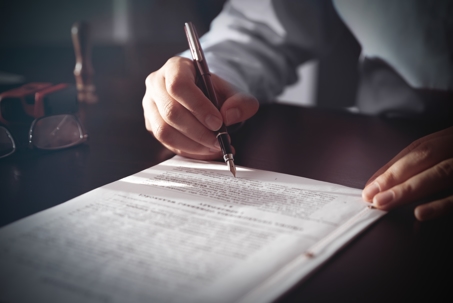Creating a will is one of the most important things you can do to protect your loved ones and ensure your assets are distributed according to your wishes. In Florida, the process of drafting a legally valid will involves more than just writing your intentions on paper. This guide walks you through each step, helping you make informed choices for your legacy.
Whether you’re starting your estate plan for the first time or updating an old will, these steps—and the help of an experienced estate plan lawyer—can make the process simple and secure.
Step 1: Understand the Purpose of a Will
A will is a legal document that outlines how you want your assets distributed after your death. It can also designate guardians for minor children and appoint a personal representative (executor) to handle your estate.
Without a will, Florida law determines how your estate is divided—often in ways you might not expect. That’s why a will is a foundational part of any solid estate plan.
Step 2: Take Inventory of Your Assets
Before writing your will, make a list of everything you own, including:
- Real estate
- Vehicles
- Bank accounts
- Investments
- Personal belongings
- Digital assets (like online accounts or crypto)
This helps ensure nothing important is overlooked in your plan.
Step 3: Choose Your Beneficiaries
Decide who will receive your assets. You can name individuals, charities, or organizations. Also, consider backup beneficiaries in case someone predeceases you.
Step 4: Appoint a Personal Representative
Your personal representative (also known as an executor) will be responsible for managing your estate, paying debts, and distributing assets. Choose someone trustworthy and organized.
Step 5: Decide on Guardianship for Minor Children
If you have children under 18, you should name a guardian in your will. Without this, the court will decide who takes care of them.
Step 6: Consult an Estate Plan Lawyer
While DIY options exist, working with a qualified estate plan lawyer ensures your will complies with Florida laws and reflects your unique needs. They can also advise whether you should consider additional tools, like a trust or a Lady Bird Deed Florida—a deed that allows you to transfer real estate upon death without going through probate.
Step 7: Draft and Sign Your Will
In Florida, a valid will must be:
- In writing
- Signed by the testator (you)
- Signed in the presence of two witnesses
- Witnessed by two people who also sign in your presence
Notarization isn’t required in Florida, but it’s highly recommended to make the will self-proving and avoid delays in probate.
Step 8: Store Your Will Safely
Keep your will in a secure location such as a fireproof safe, with a trusted family member, or with your attorney. Make sure your executor knows where to find it.
Step 9: Update Your Will as Life Changes
Marriage, divorce, the birth of children, or acquiring new property are all reasons to review your will. Regular updates ensure your estate plan stays current.
Estate Planning Tips for Florida Residents
- Use a Lady Bird Deed Florida to keep your home out of probate
- Create a durable power of attorney for medical and financial decisions
- Consider a living will or advance directive
- Always review your beneficiary designations on life insurance and retirement accounts
Final Thoughts
Creating a will in Florida doesn’t have to be complicated. With thoughtful planning and the help of an estate plan lawyer, you can protect your family, avoid unnecessary legal hurdles, and gain peace of mind. Start building your legacy today.
FAQs:
Q1: Do I need a lawyer to make a will in Florida?
A: While it’s not legally required, hiring an estate plan lawyer ensures your will is valid, complete, and tailored to Florida laws.
Q2: What is a Lady Bird Deed, and should I include it in my estate plan?
A: A Lady Bird Deed Florida allows you to transfer property to heirs outside of probate. It’s a smart estate planning tool for homeowners.
Q3: What happens if I die without a will in Florida?
A: Florida’s intestate succession laws decide who inherits your assets—typically your spouse or closest relatives. A will gives you control.
Q4: Can I update my will after it’s signed?
A: Yes. You can revise your will anytime through a new will or a codicil. Regular updates are one of the best estate planning tips to follow.


